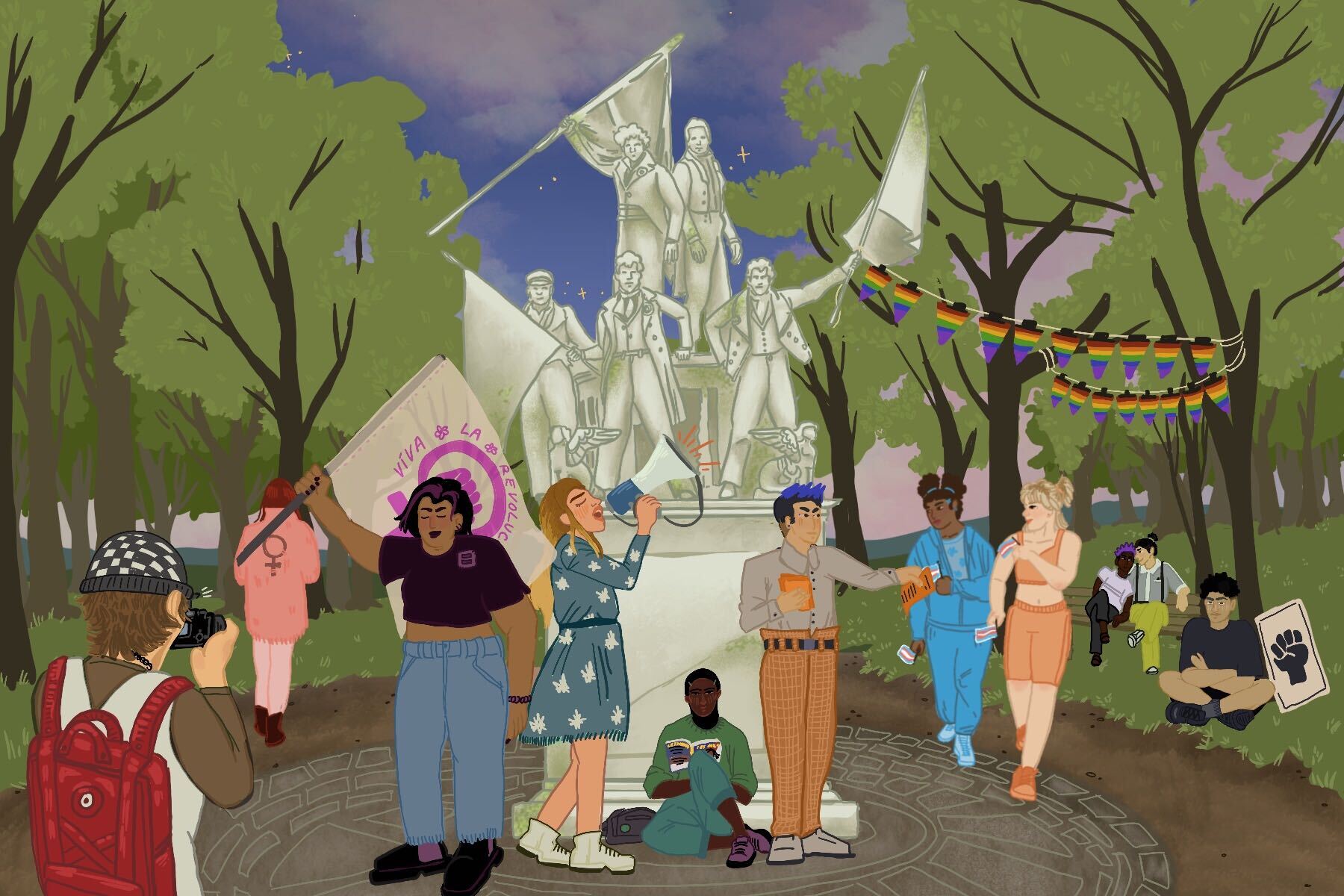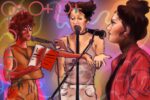We’re living in a world where police brutality, protesting and an ever-changing political climate have become the norm, so it is comforting to escape with a classic movie. “Les Misérables” is a timeless musical that is fun to sing along to, yet conveys an important political message. Here are four reasons why “Les Misérables” is both a great movie and a beacon of hope in these difficult times.
1. Jean Valjean Is the Hero We Should All Look up To
Set in 1815, after the French Revolution wreaked havoc on the middle and lower classes of France, the movie focuses on the life of former prisoner Jean Valjean in a time period riddled with poverty, hunger and cruel treatment of the poor. The antagonist is Javert, the policeman who tormented Valjean as a prisoner. After being released on parole, Valjean decides he must become an honest man and sheds his former identity as a prisoner to start over as the mayor of a small town in France.
As mayor, Valjean rescues a woman, Fantine, from the wrath of Javert when she is exposed prostituting herself to provide for an illegitimate daughter. Javert soon discovers that Valjean is his old prisoner, and he sets off to find him. To honor Fantine, who has died, Valjean vows to find and take care of her daughter, Cosette.
Valjean selflessly risks his life for Cosette as he raises her in secret. When Cosette grows older, she falls in love with a law student named Marius, who is a member of an underground revolutionary group, known as the Friends of the ABC.
This group of radical students plans a political uprising against the French army, but they have little support from other members of the lower classes. At the height of the revolt, Valjean joins and saves Marius after he is wounded.
Like many of the protestors gathering in cities across the United States and around the world, Valjean is willing to give up his comfort, safety and freedom to help those in need. Valjean consistently shows mercy and compassion for everyone, despite their past offenses. He shows great integrity and perfectly captures the spirit of the current protestors marching for justice.
2. Javert Epitomizes Corruption of Authority
There are striking similarities between the way Javert acts in the name of “justice” and the many depictions on the news of police officers shoving protestors or tear-gassing groups of people. It is evident that Javert’s character shows the type of values that do not belong in law enforcement: complacency, violence and the upholding of unjust laws, instead of helping and protecting those at risk.
Throughout the movie, there are countless examples when Javert proves to be the “bad cop” and Valjean is the kind-hearted hero. When Fantine loses her job and must become a prostitute to help her daughter, Javert shows no mercy and wants to send her to prison, but Valjean shows empathy, striving to take care of her instead.
Similarly, when Javert learns of the uprising scheduled by the Friends of the ABC, he immediately goes undercover to tear them down. When Javert is discovered in the middle of the riot, the Friends of the ABC order him to be murdered. Valjean volunteers to kill Javert, but instead lets him free. After Javert is shown mercy at the hands of Valjean, he later allows Valjean to take a wounded Marius back to his home.
Tormented by the unlawful duties of his job, Javert later jumps off a bridge and dies. While Javert’s untimely demise is both sad and heroic, his character is the perfect depiction of how law enforcement is tasked with the decision of hurting people or helping them.
3. Protestors Can Be Motivated by Watching the Underdogs Fight for Those in Need
The current political unrest between protestors and the U.S. government has become an unavoidable topic of discussion. Like Valjean and members of the Friends of the ABC, the protestors supporting Black Lives Matter choose to fight for the good of humanity, for equality and justice. In a time when oppression by the government and police force seems inescapable, the protests remind citizens of the good that is worth fighting for.
Despite the little support the Friends of the ABC received from other members of the lower class, they persevered and tried their best to stage a rebellion in the name of reform and better treatment of the poor. The overwhelming outcry for justice and sense of unity among the small group of radicals resonates with modern-day activists and shows why “Les Misérables” is relatable now more than ever.
4. The Songs Are Fun and Politically Relevant
The message of “Les Misérables” has larger social and political implications, and the soundtrack is no exception. The numerous ballads sing of overcoming oppression, even when change might be slow or seem impossible. The opening march, “Look down, look down, you’ll always be a slave,” is a daunting tune and reflects a government’s constant oppression of innocent members of society.
The solemn solo of Fantine, “I dreamed a dream of time gone by, when hope was high and life worth living,” captures the heartbreaking helplessness that is so easy to feel when there is little progress being made.
When Enjolras, the leader of the Friends of the ABC, begins the song “Red and Black” during a meeting to discuss ways to mobilize other lower-class citizens, the power of a movement brewing can truly be felt.
Enjolras, condemning Marius for being unfocused, sings, “We strive toward a larger goal, our little lives don’t count at all!” This single statement reflects the selfless nature of every protestor joining the Black Lives Matter movement.
The anthem of the riot sung by the revolutionaries is a chilling and inspiring testament to the power of a people who have been oppressed: “Do you hear the people sing? Singing the song of angry men? It is the music of a people who will not be slaves again.” With this energy, the millions of protestors around the globe gathering to support BLM can be encouraged to speak up for others and demand change.
Whether you’re exhausted after a long day of signing petitions and demanding justice for the Black Lives Matter movement, or just looking for a good movie to watch, “Les Misérables” is a musical that will leave you hungry for political change and equality.

















